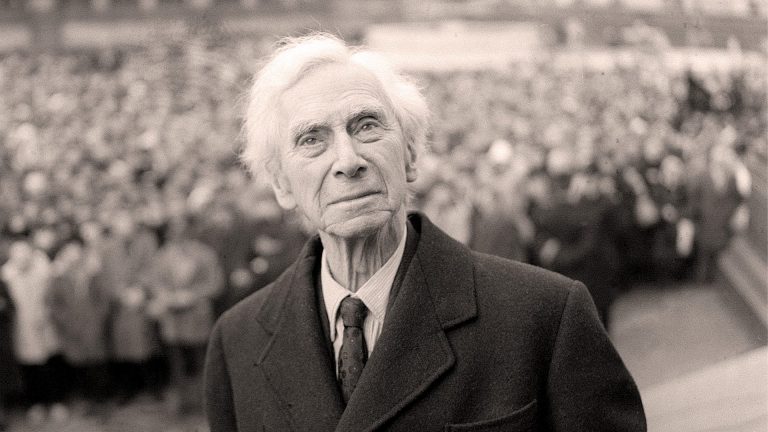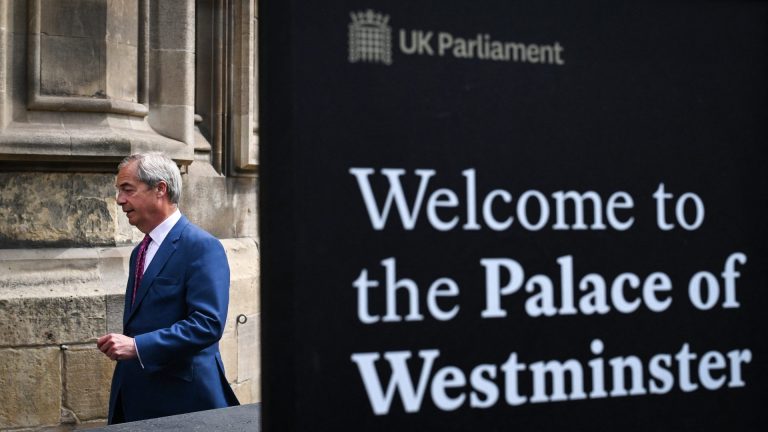I first stood for the Commons in the then-safe seat of Solihull in 1974. My Tory opponent was Percy Grieve, father of Dominic Grieve, who battled vainly to make his party see sense on the question of Europe. Percy Grieve’s father was killed in the Battle of Ypres in 1915, in one of the wars that European nationalism seemed condemned to fight every generation.
Percy Grieve came out of the war, like so many men of his class and of his time, determined that a new Europe had to be built that would never again go to war.
Churchill stunned the world in 1946 when he called for a “sort of United States of Europe” in a speech in Zürich. It caught the imagination of nations that had just endured two devastating wars. It offered the prospect of reconciliation across the Rhine and hope for the post-totalitarian nations to become part of a broader European democratic structure.
In 1950, the French proposed to end national control of their giant coal and steel production, the industries that provided the weapons of war and the energy to fight.
Britain was invited to join this new, de-nationalised European Coal and Steel Community, but the Labour prime minister, Clement Attlee, turned down the offer. He was backed by his foreign secretary, Ernest Bevin, the same man who had written on blue Foreign Office notepaper in Polish to every Polish soldier and pilot who migrated to Britain in 1940 urging them to return home. If they had done so, many would have suffered the same fate as the 20,000 Polish officers and civil servants executed by Stalin at Katyn in 1940.
Labour could not handle Europe. The party did not know what to say. Attlee’s successor as leader, Hugh Gaitskell, said that to join Europe on the same basis as France or the Netherlands “meant the end of Britain as an independent European state… it means the end of a thousand years of history.”
Not even Nigel Farage or Tony Benn would indulge such hyperbole. Gaitskell was a Winchester and Oxford educated intellectual. He was followed by Harold Wilson, who said he “was wading through shit on Europe” to try to keep Labour together after Edward Heath took the plunge and joined the European Economic Community in 1973.
Read more: Ipsos polls: Brits want a reset with Europe
Heath faced opposition from Enoch Powell who – like today’s Reformers and the Badenoch Tories – decided to make open racism and anti-immigrant hate a force to mobilise support against Wilson and Heath.
I was a delegate from Birmingham to the Labour Party special conference on Europe in 1972. The aim of that meeting was to decide policy after Labour MPs led by John Smith, voted with Conservatives and Liberals to enter Europe.
It was a two-day festival of hate and demagogy against Europe. I listened spell-bound as Michael Foot, Tony Benn, Neil Kinnock, Barbara Castle, Robin Cook (soon to become an MP), along with the trade union leaders Jack Jones, Hugh Scanlon and Rodney Bickerstaffe, all joined in to condemn partnership in Europe as the worst possible future for Britain.
I recount this history because there is an idea that the Tories and the far right – the National Front followed by the BNP followed by Ukip, today Reform – are the only anti-Europeans. That is wrong.
Labour has never looked into its soul and asked why for the first four decades after the end of the war, including the 1983 election when Labour pledged a referendum with a recommendation to leave Europe, so many key Labour figures have approached Europe much as Nigel Farage or Daniel Hannan do today.
Many complain about Keir Starmer’s refusal to say a negative word about Brexit. In 2022 he even purloined Theresa May’s pledge to “make Brexit work”. But it is now widely accepted that the rupture with Europe is a purpose-built GDP reduction measure. No one can make Brexit work.
British exports to the US will be more expensive for American consumers than under any previous US president. Even Andrew Bailey, the fence-sitting, say-nothing governor of the Bank of England, who always says he does not take a view on Brexit, told the BBC that reversing the post-Brexit hit to UK-EU trade would be “beneficial”.
This is equivalent to Bailey stripping naked on the steps to the Bank of England and shouting at the government: “For God’s sake get a grip. If we don’t reopen trade with Europe we’re sunk!”
We can join trade partnerships in every corner of the world. But nothing can replace what the Tories bequeathed Labour in 1997 – comprehensive access to the world’s richest consumer market for every product or professional service or artistic endeavour Brits have to offer.
The European Single Market, including the four freedoms of movement of goods, services, capital and people, was pushed through by Margaret Thatcher. It was welcomed by Pope John Paul II, who said that Thatcher’s 1982 Single European Act “will hasten the process of European integration. A common political structure, the product of the free will of European citizens, far from endangering the identity of the peoples in the community, will be able to guarantee more equitably the rights, in particular the cultural rights, of all its regions. These united European peoples will not accept the domination of one nation or culture over the others, but they will uphold the equal right of all to enrich others with their difference.”
But maybe Anglican England doesn’t want to take advice from a pope in Rome. It is a stark truth that most Labour leaders and prime ministers have resisted European partnership, while Conservatives who have led Britain deeper into Europe. As James Callaghan said after his premiership, “I always preferred the empire to Europe.”
Even Tony Blair was frustrated by the eternal hostility of the Treasury to sharing power, and its rejection of the idea of a common European currency. I kept a daily diary as an FCO minister in the second Blair government 2001-05, including a long stint as minister for Europe. Re-reading them, what comes through is the lack of enthusiasm for full partnership with Europe from most other cabinet ministers and their advisers.
No one expects Starmer to start wearing a Rejoin T-shirt, but his sheer silence and timidity in offering any leadership on Europe is puzzling for many people in Labour. Activists are worried that the Lib Dems and Greens are hoovering up the votes of the now well over 50-60% of voters who think Brexit was a mistake and would like a correction. Don’t forget that despite the BBC endlessly promoting Reform, the Greens actually have more elected councillors.
Switzerland in 1992 and Norway in 1994 had referendums in which they rejected joining the European Economic Area, a kind of soft landing for not-quite EU membership. The Swiss and Norwegians, like the English, have always clung to their sovereign status.
But in the intervening decades since the 1990s, both Oslo and Bern have quietly negotiated deals that allow them full access to all the benefits of EU membership.
Britain could gently go in that direction. But it needs political leadership to open an honest debate. If Starmer is too uncertain, other cabinet members should be allowed licence to tell the truth about the damage Brexit has done, is doing, will do.
Labour is not sitting on the fence. Starmer is hiding under the duvet, burying his head under the pillows, hoping that if the government sees no Europe, hears no Europe, speaks no Europe, the question of Europe is therefore answered. It won’t be.
If Starmer wants to train British workers instead of relying on immigrants, all he has to do is copy the big EU states where apprenticeships linked to firms produce new generations of trained, well-paid workers who are not university graduates.
There are two consequences of Starmer’s sealed lips. It leaves the anti-European ethno-nationalist space to be filled by Farage cultists. It also leaves the pro-British case for trade and mutual wealth creation with our closest neighbours, many wealthier than we are, to be made by Lib Dems, Greens, the SNP, and even in time some modern Tories.
Once again the question of Europe lies heavy on Labour. Starmer can choose not to answer it – but that would cost the party I have been in for more than half a century dear.
Denis MacShane was a Labour MP for 18 years and minister for Europe under Tony Blair. He is author of Brexiternity: The Uncertain of Britain (Bloomsbury)











